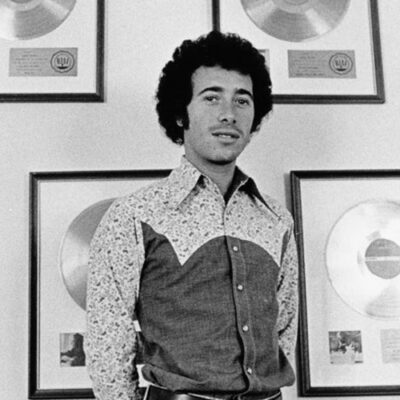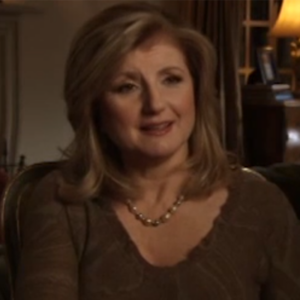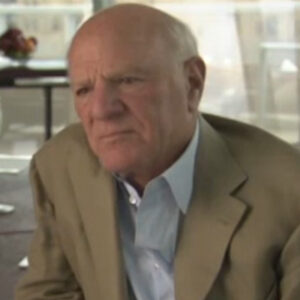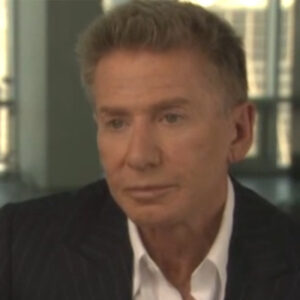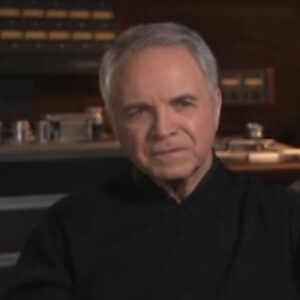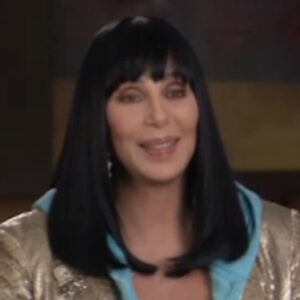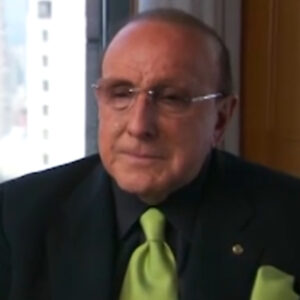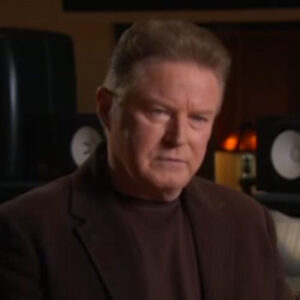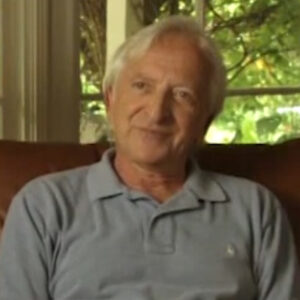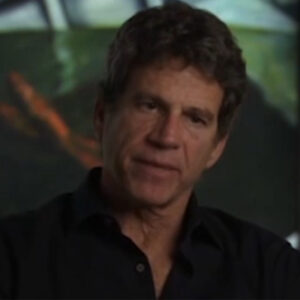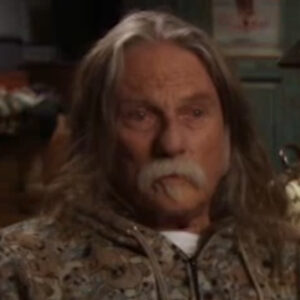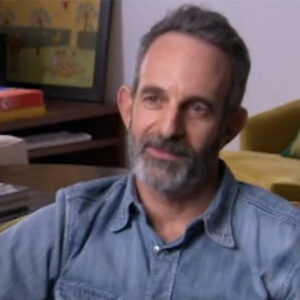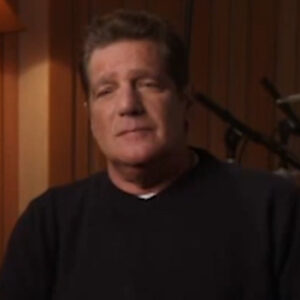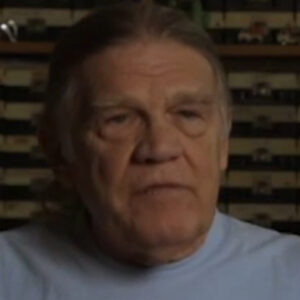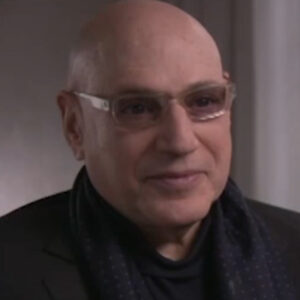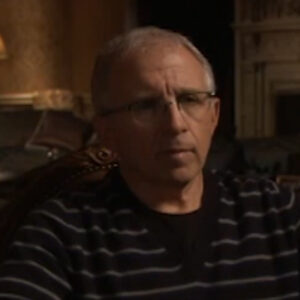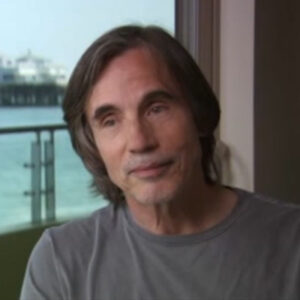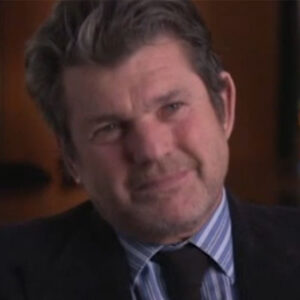Speaker Tell me about the first time you met David. What were your impressions? What did he look like? How did he act?
Speaker Are we having already been in in groups knew that we were. In a shark pool. In the music business. And we decided that we needed our own chaat. So we went shark shopping when we went looking for managers that could handle it. That can handle how completely corrupt and dishonest and messed up the music business was. Now, I had met Elliot Roberts. Through Joanny, he was managing Joanny when I met her. And. I kind of wanted Elian. But the other guy said, well, yeah, he’s good and he’s kind of a mansion or he’s a nice guy. Little did they know, but it’s a Joe. Eliot, there’s a guy you should meet, and so he took us down to an apartment on that street that runs across the bottom of the park, one of those super expensive buildings to an apartment. We were duly impressed. He’d borrowed it. It was Geffen and I. You know, you make an immediate impression. It’s not doesn’t make you 30 seconds to say, OK, the guys were really smart. He’s. Hungary is Graysmith. And he’s probably quite ruthless. And. He looked just about right. And we talked it over with each other, you know, afterwards, and we thought it was funny that he set us up by borrowing this apartment, you know, because I’m sure he didn’t live in an apartment or anything like that one, but. We also thought, you know, OK, it means he’s thinking strategy all the time. It doesn’t do stuff by accident, but pretty much any impressive because he was smart and tough. And we thought. We talked it over. Between each other and we decided, OK, the two of them, Ellie Roberts, David Geffen, and it was a very good choice on our part. You know, we had already been through a lot, we had quite a varied bunch of experience. Graham, more than any of us, you know, the holidays have been. They had more hits than everybody else put together, you know, and he had been. You know, on top, for a long time, birds had a few, you know, Springfield had a few. But anyway, we we we knew kind of what the business was like. And David, look just about right, and it turns out we were totally right.
Speaker Is this the apartment where you saw all this loud music and you got a little worried about his taste in music and about Laura Nyro? Is that that same.
Speaker Laura Nyro was one of the major factors in his favor when we found out when you started talking about Laura Nyro and then he took us to meet her, we said, oh, OK, so there’s another side to this guy because he obviously loved her. He obviously cared about her, which wasn’t what we expected. We expected this. You know. Fastest gun in town. And. When he took us to see Laura, it was plain that he cared about her. And it was also plain that he knew how good she was, which came as a kind of a surprise to us, we weren’t looking for somebody who was hip about music. We’re looking for somebody was hip about money and business. And it was not what we expected, that he would realize that he would be the kind of person who would realize just exactly how completely amazing she was. That was a kind of a shock. It must’ve been a pleasant shock, was a very pleasant shock.
Speaker Do you think that if David had not had that ear, that ability to connect to the music, that his career and his record company would have been as successful?
Speaker I think David would have been a success if you dropped him off in the middle of the Sahara Desert. David Duke came from. You know, very humble beginnings. And and he was a very determined guy that he was not going to stay that way. I think you could have put him in almost any business and he would have wound up running it.
Speaker What about what was he projecting that made you realize that intelligence, intelligence, you know, and a surprising amount of knowledge?
Speaker Now, he was working I mean, worked his way up from the mailroom in the agency the way you do. And it doesn’t take you too long to if you want to survive in an agency to get pretty smart about how the record business and show business work and.
Speaker He he was pretty knowledgeable guy. What made you think he was ruthless? What made you think he wasn’t?
Speaker I’m just asking, what was he projecting that made you think that it was a young guy?
Speaker Do you know anybody who has encountered David Geffen that doesn’t have the impression that he will be ruthless no matter what it is that he projected that made you see that he was a kid, which he would look at a problem?
Speaker And cut to the quick of it, to the heart of it, and he would be.
Speaker You know, I mean, there was no, you know. It’s warm and fuzzy there. Well, the way they treat you is the plan, there’s a build that in in the first place and then they settle halfway and then you lose this much. And he would you know, he knew what he was talking about and. And he didn’t, you know, pussyfoot, he was very direct and I don’t know, I mean, I can’t describe it as well as I’m sure you wish I could, but but I don’t know anybody that’s ever met David that didn’t. Fairly soon get the impression that he could be ruthless. He certainly wasn’t when Laura.
Speaker Did you feel protected by you? Yes.
Speaker Yes, I did say that, yes, I felt protected by him and Ellie, but they now we weren’t up against the worst of the deal. We were we were working with Ahmet Ertegun, who loved us. And also protect this armor would defend us against elements within his own company that would be, you know, trying to chiselers. The accounting department of a record company that’s their job is to try and figure out new creative ways, just as it was not a battle. You know, Ahmed and David wound up being friends, good friends.
Speaker But, you know, I knew all that quite well. Wonderful, wonderful. I just had dinner with Mika the other night, were really good friends. Sweet. What do you think David learned from it? I mean, I think he I mean, he wanted to be at the. What is it you think he learned and absorbed and what did he not learn in itself?
Speaker I think he learned the way that you have to be discerning about which means is which and that, you know, there are all different. Ahmed was a guy with a tremendous heart for music and to go to a Ray Charles concert and cry. Was moved by music. Really not fake, not pulser moved by and, you know, he was thrilled. With good music. When he.
Speaker What’s her name? Respect. Are you expecting everything when he stole Aretha from Columbia? Laughed for like a year they were trying to lounge act. They had no idea what they had. And he. Take her away from them, and within six months, he had her at the top of the charts singing the stuff that she was supposed to sing had something to do with it. Jerry did. Jerry did. The AMA had a number of extremely bright people around him. You know, he wasn’t stupid either, but he had Tommy Dowd. Now, Tommy Dowd is one of the most intelligent guys that ever worked in the record business ever. He knew technically more about the process than anybody else in the record.
Speaker This great engineer, great engineer. Is there a problem? No. Well, I can tell there is a can be sure to. The problem is that the wind is blowing this way and that’s going back and forth in the shadows, moving on the wall.
Speaker But now that we’re on camera, now that we’re on the subject of it, I have to ask you this story because I want to make sure I have it right.
Speaker Here’s a story that I’ve heard about how you guys became a group. They want to become a group, but somebody had to get out of somebody’s contract in order for that to have. And that you and Graham. We’re on Columbia, actually.
Speaker That’s almost right. It’s almost right, Graham, once you are epic. I had, quote, quit the music business and I called up. I think it was Clive.
Speaker And I said, I’m quitting, they threw me out of the birds. I’m quitting, I’m not going to do it anymore. I want out of my contract and he let me.
Speaker Graham was on contract there and Stephen was on contract. All. Yeah.
Speaker And might have been at but same thing. And that Clive wanted to put you guys together, but Stephen had to be you know, they had Clive and didn’t have anything to do with it, and neither did we did it. OK, but is this story true at all?
Speaker There was a train that went over to talk to Jerry Wexler to try to get Steven out of his contract. Jerry, through him, I mean, David tells the story. Jerry threw him out.
Speaker Yeah. No, they weren’t going to let him go, Steven. And that’s Armitt, not Jerry. But but Jerry might have been the one that he talked to, but absolutely no way with Simon. Kind of what Stephen Stills go. He knew what he was. And and Armitt had something to do with the trade. They traded Nash for a guy in Pocho. And that was a really dumb trait on their part.
Speaker And it was dumb of Clive to let me go because I was free to sign with it like that. But none of them had anything to do with putting the group together.
Speaker How the group. But there had to be something had to happen legally that just had to happen.
Speaker The contractual had to happen so we could be together. But no, nobody, nobody but us had anything to do with putting.
Speaker It was very clever of Ahmed to turn the situation around and say, hey, we want Crosby, Stills and Nash over here, and then David had to go back to Clive and make this trade. And Clive, I think, has covered it up pretty well. But I think Clive probably felt pretty take fairly.
Speaker He should have Armitt. You know, that was, like I said, Aretha. It wasn’t the first time I was very smart. And he was smarter about the record business than the guys at Columbia were. And he knew that Stephen Stills was going to be. You know, he’d already he had the Springfield for a while and he knew what Stephen was, and if Stephen wanted to work with this guy from the birds and this guy from The Hollies, you know, he knew.
Speaker So when you were then became a group and you were in Atlantic, Tom Dowd was your your engineer?
Speaker Yeah. Yeah. So who?
Speaker Who was how did you how did you know that, Tommy, Jacqui, we knew just by reputation and and.
Speaker By, you know, by meeting them as we went along, our engineer was like, I see him escapes me right now. Who I know really well is now working in Nashville and he’s a big and tall and blonde and I can’t remember his name.
Speaker That’s what happens to old people. And it’s going to happen to you, too.
Speaker Do you remember playing songs for David?
Speaker Yes, what was that experience also for music that had a little bit a little bit and he learned some of it from them.
Speaker He did love it. I have said from the very get go, he knew how good Laura Nyro was. And that was a key factor for us. Because he saw it and he knew it, and it wasn’t just him feeling sorry for the lowly strange girl who lived up in the penthouse, it was, you know, and she was that good that she feels that here. Oh, he was her protector. He was here, her knight in shining armor, you know, she she really believed in David. Did you get to know her a little? Yeah. There’s pictures of us singing together and St..
Speaker She wasn’t easy, no, particularly the kind of evening that she was deep, deep on, but she liked us, you know, and came out as much as you were going to get her out, I think.
Speaker Look, tell me a little bit about Elliott in this early period when he was working with tell me, I know you like a cup of coffee.
Speaker No, he he he already was her manager credit where it’s due.
Speaker Ellie Roberts was her manager. And because he had seen her, I think, in Philadelphia or New York at a club and said, I want to be your manager, I am. And so fully give Elliott the credit. He knew what she was. I I walked into a coffee house in Miami and she was in the middle of Michael from mountains or both sides now or.
Speaker And I just just flattened me against the back wall.
Speaker I, I, I couldn’t believe the level of talent that we see on the level of singing, the level of writing the level or playing the level, you know, like many another singer songwriter to follow me, I.
Speaker Had an immediate crush on her really right away that night, immediately, I bet we could talk about Jodi for a long time, but we’re not that I do want to get some sense of this team.
Speaker Here you have Elliott representing Jodi’s amazing talent and David representing Laura, an amazing talent, two of the major singer songwriters of that era. And they form a partnership that sounds interesting to me. Let’s talk a little bit about what drew them to each other.
Speaker And we did. We we they I think they wanted to partner because they recognized in each other, you know, the the intelligence and the musical taste and the ability.
Speaker You know, because they are both Ableman and and we said, we want you to know we were sort of trying to make a choice and, you know, we want both of them. So then they informed, look out.
Speaker And how do they complement each other? How do they work together? What was look at life when you walked into that place? What would it feel like? Describe it. Make it come alive?
Speaker Well, they were both, you know, very, very, very active, very still hungry and looking for. The next thing to do, meanwhile, trying to keep us on track and and, you know, deal with some very hungry wolves, have to remember this is still when all the different promoters in the country were each had a turf. Bill Graham at San Francisco, John Law at Boston running Telstra York was like it was it wasn’t there wasn’t one thing. So he had to deal with all these guys. They were like sharks.
Speaker They were tough and they were turf conscious. And if you tried to book with somebody else in their turf, they’d put the biggest act they could find up against you on the same night. And destroy that other person that you met with, so they they were very busy all the time because at the same time that they were trying to make us be the biggest success in the country or in the world, they were trying to find the Eagles.
Speaker For example. Who walked in the door right behind? But they got it published.
Speaker They didn’t get our.
Speaker Did they really have no context?
Speaker There was never any anything but a verbal agreement, we never had a written contract. Was that unusual?
Speaker Not until later. Later we did have a written contract, which is a story unto itself.
Speaker There was a contract written later on and they they did it so that they could write their 15 percent into the contract and then they took it and sold it, which had never been done before.
Speaker Help me understand that we are having a hard time understanding what did they sell their 15 percent to whom?
Speaker I don’t know, but I think that’s where David got the money you started, so.
Speaker I think he got it, he did sell his management contracts.
Speaker He went to buy and you told us he had written the he and the only and had written there 15 percent of our their management, you know, 13 percent into the contract.
Speaker And then it was then it had legal entity and it could be sold. And it was.
Speaker But you never signed your silence, so I’m a little bit different. They took the money to start Stanislav. At least I think that was what they did with it, but I don’t know what it doesn’t make sense, actually. Yeah. Yes, it does.
Speaker They it once they put it formally into the contract, we owed them 15 percent of our earnings. That was a quantifiable thing, and people knew that our earnings were also quantifiable. They knew what we earned. So that was an amount and it could very it could get bigger or get smaller, but it was a serious amount and they could take that and.
Speaker That’s probably a fail, a failure on my part that I don’t quite understand it, I understand with his side to his side, but I think they do need us to sign.
Speaker We’ve already signed the contract, which gave them a guaranteed 15 percent. That’s where the value was. If they could have gotten us away from Atlantic, they would have said this to us.
Speaker You are going to go anywhere and I don’t blame you.
Speaker Now, my understanding of asylum that asylum started was that that David actually tried to sell it on Jackson Browne and by then he said this is a huge mistake.
Speaker You know, like, look, I brought you Crosby, Stills and Nash. Look how much money that’s made you. David was right. What was wrong.
Speaker And all that said, you know what? I already have enough money. Why don’t you start your own label and you make that happen.
Speaker And then he then made the deal. He paid for the company. He made guarantees.
Speaker That’s my understanding. It just basically did it.
Speaker Is that what happened in the money part, money part was a little more complex, but yes, the rest of it, yes, that did happen. And David was totally right about Jackson, of course. I remember I walked into somebody’s house and Jackson was sitting there and he sang me. You’re saying the Jamaica something fine and Adam.
Speaker One, two, three, just like that, and I went. And he looks like they’re. Here comes the next wave, you know, and. So I did all the harmonies on his first record.
Speaker I want to go back, though, to your singing David song, do you have any specific memory playing something for him and what his response from.
Speaker And not a specific time, but I mean, you know, that was 40 years ago, and so, you know, my memories of it, I mean, maybe, you know, a little spotty. But I know that we did.
Speaker You know, we used to be able that first Crosby, Stills, Nash record, we used to be able to sit down anywhere.
Speaker With a guitar and singing the whole record.
Speaker Just right there singing the entire record, we’d pass the guitar, sing the whole record. We did it for we went to England actually we wanted to be on Apple. We did the same thing to James Taylor. We went to England and said, hey, it’s the Beatles company. We want to be on it, you know? So George and Peter Asher came over to our apartment. And we did just that, we said that when the guitar sang on the whole record, they said thank you. We got a note from a waiter saying that we don’t think so and. I think they probably regret a little bit. I regret that.
Speaker Oh, I think it’s George making that decision. It doesn’t seem right.
Speaker No, it doesn’t, because he was very bright about it, but and so is Peter and Peter’s a friend of mine and I can’t imagine why they made that decision, but they did.
Speaker They passed us and we should have been with Atlantic anyway when we were trying to live long, you know, and put the band together, Ahmet would would give money to Steven to keep us fed and alive.
Speaker He would give Steven, you know, five grand to keep those boys together once this thing kind of put this together and plunk down money. I mean, I don’t think the band would exist without having had Ahmed as a. Mentor.
Speaker Which is why you were I was at the memorial you guys played first, I believe, or was it last we played last night? Amazing, amazing.
Speaker So when I understand something so David starts there’s a management company. He’s representing you with the with with Elliott, lots of people. And then he starts asylum. But he maintains. Look at that. Right.
Speaker I think, yeah. For a while. And then he just lets look out to Elliot and Leslie Morris, who the secretary thought was pretty smart lady.
Speaker But during that time that he was sort of playing both roles, there was was there a conflict of interest or sense of a conflict of interest?
Speaker You know, they wouldn’t ever let us know. That probably was, but we wouldn’t have known about it. That was all internal between Clinton and David. And, you know, there’s still friends to this day.
Speaker It was over there for dinner the other night. Tell us a story. David sent me an email a couple of weeks ago.
Speaker He said, what a day I talked to Joanie. She’s totally crazy and I talked to Bob and he’s coming for dinner. He was so excited. A couple of days later, Semin email and he said, guess what Neal’s coming to?
Speaker Now, I don’t know whether I’m reading. Something into this that I want to read into it, because I actually really like David a lot.
Speaker But what came across to me there was such excitement that these two giants were coming to his house for dinner, that there was still some part of David that was his kid back in Brooklyn.
Speaker There was a family that was a fan and not always the popular kid. And probably not.
Speaker And this was the popular kids are coming to my house for dinner tonight and one thing and he was like a kid, there’s some of that. There’s definitely something.
Speaker It was sweet. Can you talk about that part of David? Is there a part of David that was a failure?
Speaker There’s a part of David that’s very appealing. And, you know, most people see him as this, you know, megabucks ruthless, you know. Guy who, you know, can kick your ass with DreamWorks, you know, but there is a part of him that that still is a fan. And it’s thrilled to have old weird Bob come over and and that’s thrilled, you know, to be friends with Neil and he is friends with you and he’s friends with me. We. We’ve never stopped being friends. I it was a long gap in our friendship, and then I remembered that David was on a television program. I can’t remember what it was, but it was a big deal, it was something like the Grammys, but it wasn’t the Grammys, and he said he was giving a speech and he said, as a gay man, I feel that. And I thought that this was not when it you know, most people were coming out.
Speaker And so I called him up the next day. And I said, David, you know, it’s really proud of you last night. Made me proud to be your friend. I thought that was cool. Just want you to know I’ve always been ready to jump in your shirt when I thought you were wrong, but so I should be just as ready to tell you what I think you’re really right. That was really right. And that, you know, opened the door again between us.
Speaker OK, so, you know, we love him. That’s Graham said that I remember him saying that I don’t hate him.
Speaker I never did. I. But, Roland.
Speaker OK, we love them, we hate them. Yes, Graham did say that, but I never. At times, I was wary of him.
Speaker You know, it’s like being in a room with a wolf. He seems like nebbishy kind of, you know, kid from the Bronx, but. The brain is not a little kid from the Bronx. I might have been wary. Never had. Never, ever. Other people do a lot of people who try to do business with him. Particularly anybody that tried to take him.
Speaker Probably is still licking their wounds, you know, you want to get into a fight. Don’t get into a fight with David. And forget and give up. We always went.
Speaker But what I mean, a lot of people in the news that you could say that about, a lot of people in the news business, I mean, it’s a tough business on it, by the way.
Speaker It was tough, very tough guy, very tough. But he and David could see each other and they said, look, you got you think I can make this up, you know, because they didn’t really want to draw swords with each other at all. They knew they had each other’s measure. So that’s the smart thing to do, is be friends with work, which was, you know, even Ahmet sued by a bunch of artists for not paying royalties.
Speaker And then. And then and then he did the right thing, absolutely rewrote everybody’s contracts and did the right thing. But he had to get sued for that to happen. So, you know, I’m just trying to understand why, David.
Speaker Causes such deep feelings of empathy in a lot of people. What about David?
Speaker Usually they’re in conflict with being in conflict with David’s are really unsuccessful thing.
Speaker And deeply frustrating.
Speaker He’s not he’s not a dragon, he’s just very good at what he does. And he’s a complex guy. This is a guy who has a side to him that that can be childlike.
Speaker And be funny and be vulnerable and.
Speaker The another side that is, you know, about like a regimen of tanks, you know, he’s if he’s complex guy, I think most people that write are fairly complex.
Speaker Do you think his ferociousness about winning good choice of words had to do with needing to win or it had to do with needing to win for his artist as well?
Speaker Had to do with needing to win later on, became having to win for his artists as well. But largely, that was a thing of ego, of being able to say, I got my artist up here and but I think they needed to win. Thing came from when he was a little kid from the Bronx. Was it the Bronx? Brooklyn. So I didn’t.
Speaker Over the course of the story, his mother gave corsets giving me his mother. No, I didn’t tell us about his mother. Oh, sure. Have you?
Speaker Nice one. She really likes.
Speaker You know, we heard that there were people in Hollywood when they would see her screenings and things. That’s the explanation. Does that mean something to you?
Speaker No, I. No, I didn’t get any, you know, psychological hit from what their relationship might have been, but I met her.
Speaker I’m going to ask a complicated question, but. We’ll make it official that, David, because there’s a legacy there. Would you describe that legacy?
Speaker I mean, being ruthless and being great and winning and making good contracts and running a successful record company in itself isn’t really. Enough to say there’s a legacy. What did David say somebody said the other day? Good question to ask is, you know, if a tree falls in the forest in the music industry and you know what makes that report? What made David make a report? So it was heard.
Speaker That’s a good question. It’s a tough one to answer because there are lots of guys. You know, there were people who were as tough and come out of, you know, very tough beginnings and very tough circumstances. Graham.
Speaker You know you know his story, right? That was a tough guy, he you couldn’t scare him. He’d already been through much tougher stuff than you know, anything about. There were a lot of guys. Why did Stephen stick out?
Speaker I think it’s the it’s the. The duality of the. Puling funny.
Speaker And almost vulnerable guy and. Very intelligent, extremely focused, knowledgeable.
Speaker Pretty ruthless. Businessmen think, you know, we has some of that, too. It’s. He was a great guy to hang out with, you have fun. Did you hang out with him? Oh yeah.
Speaker That he was like not into drugs and all that kind of stuff, because I’m like, no, I understand, you know, sort of hung out with the artist.
Speaker I went on tour. Yeah, well, you know, but no, not so much. No one is going to say that he was the kind of clean up and clean living one of the group. Well.
Speaker You know, you saw it, it was a different stuff, you know, in the first place he was gay and he was very gay and very happy being that way and was that way, you know, before it was like cool or fashionable. And I don’t want it slowing down for a second, you know? But no, he wasn’t a druggie. Wasn’t didn’t appeal to him, you know, I think it’s the brain thing, you know, he wanted to be the fastest guy in the room.
Speaker And, you know.
Speaker I mean, you know, I mean I mean, I was a pot smoker for many, many years, I don’t do it now, but many, many years. And we, you know, our biggest cities, we drive slow, naive ice cream, but we’re not you know, he didn’t want to drive slow.
Speaker Ice cream was OK, but not for driving. He wanted to be at his full capacity.
Speaker I think do you think that your career, the career of Crosby, Stills and Nash would have taken the same road if David hadn’t been there? No, I do not.
Speaker If you could talk about that, I think David made an absolutely measurable, you know, traceable, clear difference in our career. I don’t think there’s any question about it. DLs.
Speaker Spotting trouble coming.
Speaker Keeping us out of situations that would have turned out badly, getting us into situations that would turn out well. You know, David and Eliot, I mean, aside from that first tour the Beatles did in the baseball stadiums. We were we were the first, you know, big, big, big open arena, you know, football field kind of size at.
Speaker That was David, David Nelia and people like Pilgram.
Speaker I always get this, you know, you talk about that vulnerable side of David. I’ve responded to that. I feel that, you know, a little bit in him, too, even though he’s a very practical guy with a very hard time sort of connecting with that little boy inside him. I see it. I feel it. And it’s one of the reasons I like it. Same reason you do. And I don’t I’m curious about why he can’t connect to that, why he’s such a hard time acknowledging that vulnerability, vulnerability.
Speaker You said the word you does not want to be vulnerable. He does not want to give somebody an opening to slip it in because he’s lived his whole life. In a competitive arena.
Speaker You know, he probably was competing for food when he was a kid, but he’s always been, you know, having to compete and always been small and always been, you know, coming from behind the eight ball and driven, you know, some guy driven to win.
Speaker And so he doesn’t want to be vulnerable. He will and I have seen him, I remember the look on his face when all of us were swimming naked in his pool and the look on his face when he came up to the edge of the pool and looked at pool for Crosby, Stills and Nash and a couple other people. And none of us had stature. And it came out of the pool. He looked down. So I jumped in and he was so happy. I think Grant’s expression on his face and he at that point, he was completely. Himself, he was completely there was no agenda, there was no nothing. He was just plain flat happy. So I’ve seen, you know, maybe if you’ve seen it, you know, it’s there. But he doesn’t really he doesn’t really, you know, like where whereas it’s hard on the shoulder.
Speaker So I’m. Have you told that story? Because that’s I have perhaps romantically I have this idea that aside from office, wanted to win and have assets and make money, that he really, really, really started to because he wanted to be one of the boys and he loved that, that he had a camaraderie he did not have as a young child.
Speaker And I never talked about this before, but I think David was kind of a lonely kid. And and that asylum and his partnership with Elliott and Asylum in this incredible being a part of this burgeoning amazing group of extraordinary artists. It was like a family in a way to him.
Speaker Yes. You know, he he really I think Jackson was a big part of it. Jackson very appealing guy from the get go. This A he knew this was a nice guy and you knew that that he was an enormous talent, which he is on to this day. It’s one of the best singer songwriters in the world. And and the Eagles were nice guys. I mean, they were they were just talented as hell. And Joni, you know.
Speaker Come on.
Speaker When it comes down to it, you know, she’s going to it, Bob, or maybe better and she’s a way better musician.
Speaker And Bob, so in 100 years where they’re going to say was the best singer songwriter bomber, Johnny Johnny Bomb, you know, call.
Speaker Were you around when when they were roommates? Johnny and David were roommates for a while. And you took her in after a kind of a heartbreak, right?
Speaker Oh, well, that happened more than once ones.
Speaker I remember when he and Cher roommates, huh? Which was really something fun. But now he cared about John. And it’s one of the things that’s most unfair that’s happened to David.
Speaker I thought, you know, I love Joni and I always have. She was my lady, I produced her first record. I I took her around to everybody in Hollywood and said, you know. So you want to sing a couple of songs, you know, everybody would go. You know, and I did everything I could to help her get herself started, but her blame blaming David. Thank you know, you ruined my career union didn’t support me. That’s just nonsense, dude, and everything he could it after.
Speaker And he did everything he could be reasonably expected to do and more. Now this is a person, you know, she’s rights at a level that goes right over the heads of all the teenyboppers and all the, you know, people who listen to, you know, hair bands and they don’t get Johnny. But he did everything he could. To make her accessible to the public, to make her have hits, to make her be big, everything he could. I watched him do it. I know it’s not. You know, I’m not. I don’t know. I got no agenda to lie about it. He did everything he could. He wanted her to be as successful as humanly possibly could be. And so I think her attitude about him was completely unfair, and I think it hurt him greatly. Because it was completely wrong and unfair. It did hurt. I’m sure it did, because he cared about it. Well, did everybody that knew her cared about, you know, and David was definitely one of them for the sexual thing was about, you know, knowing that she was as good as she was because she was as good as you were.
Speaker You know, some female parents, right? I sang them. So since I since Joni isn’t going to do an interview, they would be very helpful to me if you could talk about the lyrics of that song.
Speaker Joni saw David very clearly. And at that time, she cared about it, so she wrote Free Man in Paris about David, and it had to do with him realizing who he was and being out front and, you know, coming to enjoy being who he was, you know, not just gay, but smart and successful and and and on top. And she wrote that song and it nailed him. It was perfect. And naturally, she came to me and said, guys want to sing in us. And we said, absolutely, we did all the harmonies on.
Speaker There is an aspect in the lyrics of that song that are. Sympathetic to this role that he’s having to play in the sense that it isn’t a role he always wanted to play, you know, running the song maker machinery.
Speaker Yeah, well, yeah, she saw past that. She saw that pass. But later on, she wrote them off.
Speaker We did an interview with.
Speaker I’m asking you, Suzanne, to meet the man they want to be, the man oh, Gary Bauer, Gary Bauer and Gary Gary’s one for interview, actually, because he’s got a lot of perspective on this. And he’s he was talking that the difference between Eliot and David and that David was sometimes thrust into having to be the man in it, because even if we might not have wanted to be, somebody had to be the man.
Speaker Somebody had to be the guy who took care of business. And I that resonated for me because of Joni’s lyrics.
Speaker She sensed in David that he didn’t always want to have to be that guy. He would sometimes like to be the nice, soft guy.
Speaker Well, he thought he wanted to be that guy. You know, for a long time. He was still driven, as he had been since childhood. What she was writing about was the moment when he realized he didn’t have to be that guy when he realized he’d done.
Speaker He could. Go to. I’d be happy.
Speaker You know, and she saw it, she saw that she pretty perceptive girl. She definitely is. That was wonderful. That was great. So let’s go back, because I know you seem to be harping on this, but it’s kind of important to me to understand it, even if it doesn’t make this movie. I’m trying to understand what I once I got one more straight batteries, I ask the question, do you think that was David actually completely accepted by his artists or was he always a little bit of an outsider?
Speaker They think about that, Mr..
Speaker Speed, action. I never go, OK, go.
Speaker I think he was always accepted, you know, I mean, there were there would be, you know. Arguments and stuff, as there always are relationships, but but I think Hughes is pretty cool, I think I know we did if David showed, you know, at a party with us, he was one of us.
Speaker So he wasn’t really an outsider.
Speaker Now, without.
Speaker No, it was one team, but there were conflicts. I mean, let’s talk about that. There was a bumpy road there for a while.
Speaker Um.
Speaker They’ll love him and hate and think, what does the hate part come from?
Speaker I can’t tell you a specific instance, but there were there were times, you know, when we felt that we had been shortchanged. I could not point a finger at David and say he did the short changing.
Speaker But there were times, you know.
Speaker It’s a very ruthless game. And we didn’t want to be in business, we didn’t want to care about business, we didn’t want to we were fairly knowledgeable about it, but that wasn’t what we wanted to do. We wanted to write great songs, make great music and attract great women. And were we were done business was, you know, we what we really wanted to do.
Speaker What do you think that was frustrating for David?
Speaker Oh, I think so. He knew his part of the gig and he was really good at it. He was really good on, you know.
Speaker You remember the time that he brought your Hakka or was trying to bring your Hocutt to him, do you remember that story?
Speaker Yes, that was an accident. That was an accident. Uh.
Speaker I mean, you know, somebody who shall remain nameless.
Speaker Forgot what was in the suitcase. And he was coming anyway, so he would bring it with his.
Speaker When you go through it, it’s kind of a funny story.
Speaker Well, he makes a lot of money and I thought it was I was very embarrassed. I mean, you know, to it, to your friend certainly wasn’t on purpose. I just I just screwed up.
Speaker Let’s talk a little bit about asylum. Why is that a label that everyone liked?
Speaker Because they had visibly in front of the entire world some of the best singer songwriters on the planet?
Speaker And everybody knew it.
Speaker And, you know, he’s attracted to success and what was different about it as a record label than other record it did not have.
Speaker You know, the tendency in record companies was to try to build a huge monolithic, you know, organization and have departments and department heads and meetings and, you know, big buildings and, you know, big capital or big, you know, Columbia or, you know, have a chat and, you know, say a sound was about that big, but it swung a hammer about that. And that was very smart. A perfect example of David being smart in Seattle himself with a bunch of baggage, he didn’t have a board of directors, he didn’t have a building. He didn’t have, you know, waste. You know, you have an art department. He didn’t have a job. And he didn’t set you saw that that stuff was could be hired. Exactly. But by the pound. And he certainly was in office. Two offices, a couple of secretaries was it.
Speaker And they were the same age as the others and they were smart. Can you talk about that?
Speaker Everybody in the building was smart. You know, I I never will forget Leslie Morris, she was a really smart woman and and I think one of the most successful moves was not building, you know, a monument to his own ego, you know, building a Capitol Records, you know, building. He didn’t he knew he didn’t need to. And he was very smart.
Speaker Not was it unusual to have a record company that was run by such people, so young that they were the same age as the young artists, even more unusual that have a record company that was run by somebody who loved music?
Speaker Because the guys who were running the other ones wouldn’t know music from a loose. They knew they moved, you know, 50000 pieces out of Dallas this week, but pieces of what they had no idea.
Speaker David New.
Speaker I know you’ve talked about this endlessly and I don’t want to cover ground, which is covered in troubadours, but it would be helpful if you could talk a little bit about Laurel Canyon and that fertile ground for the same. Just give me a couple of sound bites.
Speaker It’s more of a legend. You know, it’s like asking about Woodstock and it’s been so aggrandized. Past, it was literally a couple of us that are really lived there, me and John, you know, it’s only been for example. Well, it’s actually up with Woodrow Wilson, but only a handful of us had ever actually lived in the canyon, you know, and later on, people, you know, said, oh, well, it all happened here. I got to move here. But truthfully, it’s been blown out of all proportion, you know, and people needing something to write about and have written, you know, endless, more fictional than not, you know, books and stories and stuff. It houses were all over, really. A lot of them were in canyons, Beverly Glen Canyon, Benedict Canyon, Woodrow Wilson Drive, or this place was more stuff happened to Kansas man in any place in Laurel. Trust me. But that’s how I mean, there wasn’t wasn’t like New York, where you would go out to eat, like walk from one club to another in the village, you know, in L.A. stuff happened over at people’s houses. And you went over and you did a little hung out and you talked, sang and played groups, but it was behind. You know, again, it was in somebody’s house, but it was all over like. It wasn’t just Laurel Laurel became symbolic of.
Speaker I know I look so asylum’s, despite its huge impact, was actually relatively short lived before David sold it to more than David builds things to sell them.
Speaker Always have.
Speaker He’s he’s he, like most really intelligent people in the music business, is thinking 10 years at. If you build something, it’s not to build a monument today, but to build something that has value and then build that value and then inflate that value in the public perception. Until it reaches the absolute maximum that it can without the balloon blowing up and then say, hey, I want it.
Speaker I can be persuaded.
Speaker And take all of that can start building three new things, all of which he intends to sell.
Speaker So do you think that all the artists understood that going into no, when did it become clear?
Speaker I don’t think it has become clear yet to us that that’s the process. But how did the artists feel in asylum when he sold asylum the way I did? I don’t know. You know, I never talked to Jackson about it. I never talked to the arguments about it.
Speaker I never, you know, were pissed off. Well, you know. They might have been like, I go there. Yeah, well, I think I had something do with publishing.
Speaker A lot to do because David gave Jackson back his publishing picture, and it seems to me that he had a very good reason to do it. The Jacksons would have been a great an for him. And, you know, when you listen to a lot of talent, he’s in love with Jack.
Speaker I always had that feeling to. But we’re not we haven’t put anything in the world, but.
Speaker How can you not be exactly the nicest guy and he loves David is a complete sweetheart and I mean, you know, if I swung that way, I would have been all over him like white on rice.
Speaker And, you know, he’s just a good human being.
Speaker You know, he always has been always going for the high ground, always trying to, you know, help other people, always being generous, always been enormously talented, as I said.
Speaker But, you know, Jackson, I want to get I’m not trying I’m not in any way trying to focus on the negative here, but I’m still having a hard time understanding what the break was about. There was a time that you had a break in your friendship and then you got back together. We’ve been friends ever since. What was that break about?
Speaker How you remember? I know that that.
Speaker At some point, he and Elliott parted ways and we went with Elliott and and I don’t even remember if there was a specific issue or if it was just a drift in directions. You know, we had to give up. We certainly were no, you know, party. We were not easy to handle. And we would periodically, you know, argue with ourselves and Neil Neil a lot like David Neil came in to see us and why planning to leave? We were a vehicle. We made that record. He knew what that record would do and he had every intention of making a solid record right afterwards and going on. And Elliott managed him extremely well, very diligently, and still does. Eliot A. Neal, extremely well, but, you know, I mean, it’s that thing of building something with the intention of, you know, leapfrogging it that was always there in their plan, you know. And on one level, here he was building a community, was building something that they could be proud of, it was building, you know, the most successful artists and the best singer songwriters. On another level, he was building something I could tell.
Speaker David, multi-level guy, so you what did you follow his career after that, after he sold asylum? Tell us tell us about what you know about that.
Speaker I don’t know. I mean, I’m not I wasn’t privy to it. I just watched it from afar. And so I wasn’t wrong about that one. You know, we thought that that’s that’s what would happen. So when he when I said that to you, but if you put David Geffen down in the middle of the Sahara, he would wind up.
Speaker Running the place, it’s the truth, when he started running Elektra Asylum, was that one of the music? People think that. People think that. I mean, what was the perception of the music industry?
Speaker And the perception was that somebody, you know, sat down at a table with table and came away, not counting their fingers, because we understand that there were a lot of artists from Judy Collins to Carly Simon, et cetera, who were very, very nervous about that.
Speaker And he dropped a lot of Electra’s artists.
Speaker That would be because they were not successful. David doesn’t do stuff to support not successful. He does stuff to support successful. If something doesn’t win, doesn’t work, David will not be associated with a very long. He he would have with Laura if Laura had stuck around, he would have stuck with her to this day, you know, about that word that he thought that she was going to sign with asylum and then she changed her mind and it was a huge hurt.
Speaker He had actually announced that she she had told him she was going to sign it, announced it, and then she changed her mind staying at Columbia and it was a big, big, huge.
Speaker She’s certainly not the only woman.
Speaker Yeah.
Speaker I have this image of David, you know, this seemingly ruthless guy who just wants to win, but that there’s a part of him that’s really does little little little boy who’s looking for approval and wants people to love him and he gives everything to it and then he gets hurt and that he’s had a series of first time.
Speaker He has a heart, he gets a little more ruthless and a little more building an island. I don’t think so.
Speaker No, I don’t think he can be hurt as many people as hurt him. You know, it was a tough guy and there were a couple of people to whom he let himself be vulnerable, and they did.
Speaker You know, we know what you want, but no, you know, I think he’s. He gave as good as he got, what kind of friend is it?
Speaker Why are you still friends?
Speaker I like him. And he likes me and where, you know, it’s not like we get to hang out.
Speaker David spends his time. Creating the next thing. You know, he’s got a couple of things going.
Speaker But when I do see him, I he’s he’s definitely my friend. He definitely remembers all the times that we shared. And he definitely, you know, doesn’t just showing me on I mean, you saw how he behaved at that thing. He came over to me and Neil and spend a bunch of time and was very happy to, you know, and hugged my wife, Jan, whom he knows very well, and hug Peggy and was very you know, he made it very plain to everybody in the room that we were friends and that he cared about the four of us. That was nice with a lot of people there who would have really liked it if you even talked to them and they would have wanted a photograph of the moment he spent time.
Speaker I think he was very pleased that you were at his table. A lot of it meant a lot to him, too. I was there, actually.
Speaker We ended up not coming up coming out for that, but.
Speaker Describe that night was Sunday night, Clive didn’t know how to work a microphone, so you can hear a word he said. And David was, you know, anyone want to stay up there? He came up, you know, they handed him his thing. He looked at it like, well, I don’t hide it in the flowerpot. And he said, you know, thank you all for your very gracious. And I walked off. He didn’t he everybody only had like a minute. Well, you know, whatever they told him didn’t matter. He would have done whatever he wanted to do if he had wanted to take that moment and, you know, say a bunch, he wouldn’t nobody was going to pull him over there. But, you know. It meant more time to actually see the people that he cared about. There were a lot of people there.
Speaker He did care about more than other guys, and the record company were good guys, you know, and now one of the things I read about that evening is that unlike many other evenings where somebody spit on that, there was somebody there from every record label and that that was unusual would be really great if you could talk about that and why you think it’s crossed over.
Speaker Other words, not only somebody there from every single record company, but from every single publishing company, from every single agency, from Rob Lighter’s like main guy and CIA who was having his own party. He was a davits, you know, and and a bunch of actors and a bunch of, you know, people from show business because David is in his own right kind of a star, you know, and and.
Speaker There isn’t anybody that doesn’t realize, you know, exactly how powerful he’s become. He’s a career maker. He’s he can put together a movie like that. He can OK, he can greenlight a project. It will have the money. It needs news. 200 million dollars will have 200 million dollars. You know, he’s a powerful guy and has a bit of the Midas touch, you know, and so Hollywood, you know, which kerith not for friendship or loyalty or any of those other things, they respect success. And he’s about, as you said, about it’s going to climb off the street the towers person could do.
Speaker Did he ever talk to you about that journey and how far he has let you know that about himself?
Speaker A. When we were first getting together, you know, he was perfectly honest about where he was.
Speaker He was very proud of what its goals were, but not how much, you know, because there’s a wonderful story about what he was selling asylum to water. And he the biggest number he could think of, seven million dollars. And later, of course, they got a much better deal. But he was just the biggest number he could think of. But he kind of knew his life is about to change. And apparently he asked Alan Goodman to drive with him over to Brooklyn. And he’s one of those I want you to see where I come from, a pretty smart car. He said, I want you to see where I come from because he knew that this this journey that he had crossed over into a new place. And whoever thought that that could happen from this kid over the course of a store, that he was aware of it. So I’m sort of curious about why he said he never talked about that. But he did.
Speaker He sort of he got to pretend to be anybody. You. No, not past borrowing that apartment.
Speaker What do you think he’ll be most remembered for in business?
Speaker Enabling great art to happen, helping to enable, you know, really, really wonderful music to ever happen and really wonderful films. He’s been he’s made a lot of really good art possible.
Speaker I happen, you know, he’s made it possible for a lot of good art that if you had to Dave, in three words, what would you. Three words. Oh.
Speaker Intelligent. Street smart.
Speaker I think most people would use ruthless, but I would say perceptive.
Speaker What would you like to say about David, I didn’t ask you that you think would add to this portrait.
Speaker Well, I think you understand pretty well, I think, you know, you’ve got a fairly complete picture of the guy, just the only thing that we know, David, tell that story so well about carrying the plot for you.
Speaker Well, he loves it. It’s a great it is a funny story.
Speaker But he said specifically he told that story he said he would see with David Crosby has to say about that. Yeah, well, I don’t know if I I mean, I’d love for you to know I’ve I fess up, you know, I screwed up as and says that’s when he realized he didn’t want to be a manager anymore.
Speaker Well, you know, I think he I think it was for a lot deeper reasons than that. No, I was just I was just a screw up and I wasn’t a big deal.
Speaker Elliot, I just want to say this delegate said something really interesting in the interview. He says that that it’s very difficult for people like David and maybe he’s talked about himself to people, the enablers, to really get thanked for what they did. And he said that basically artists, if you’ve done something amazing for them and you move this mountain, their attitude is, oh, yeah, well, that’s where the movie should have always been anyway, which is a great way, but not quite some.
Speaker You know, all of us are different. We’re we’re not uniform. Some of us go and say thank you. Some of the say that’s what I pay him for what it’s everybody’s got a different way of relating to.

